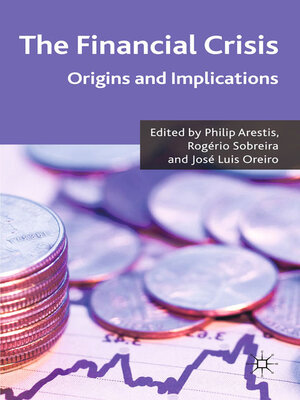
Sign up to save your library
With an OverDrive account, you can save your favorite libraries for at-a-glance information about availability. Find out more about OverDrive accounts.
Find this title in Libby, the library reading app by OverDrive.



Search for a digital library with this title
Title found at these libraries:
| Loading... |
The 2008 financial crisis poses three fundamental questions for economists and policy makers; understanding the origins of the crisis, understanding the consequences of this crisis for the world economy, and finally understanding why the 2008 financial crisis is not as serious as the 1929 crisis. The prevailing view is that the 2008 financial crisis was solely the result of inadequate financial regulation together with a very loose monetary policy conducted by central banks, especially the Fed. It is believed that this crisis is a temporary detour in the normal course of the events, so that in the near future capitalist economies will resume the high growth path observed before the crisis. In terms of the third question, there is a widespread view that the fundamental reason that explains the avoidance of the harmful experiences of 1929 was the fiscal and monetary policy expansions in developed countries. No important role is assigned to developing countries in terms of the effects of the financial crisis. This book challenges the prevailing orthodoxy surrounding the origins and the consequences of the 2008 financial crisis. The book demonstrates that measures in addition to a profound change in the financial regulation are required if a new financial crisis is to be avoided in the future, measures include: a change in the conduct of economic policy; a reform of the national and international monetary systems; and a radical change in the pattern of income distribution. This book is essential reading for all interested in macroeconomics, monetary policy, development economics and the global impact of the financial crisis.






